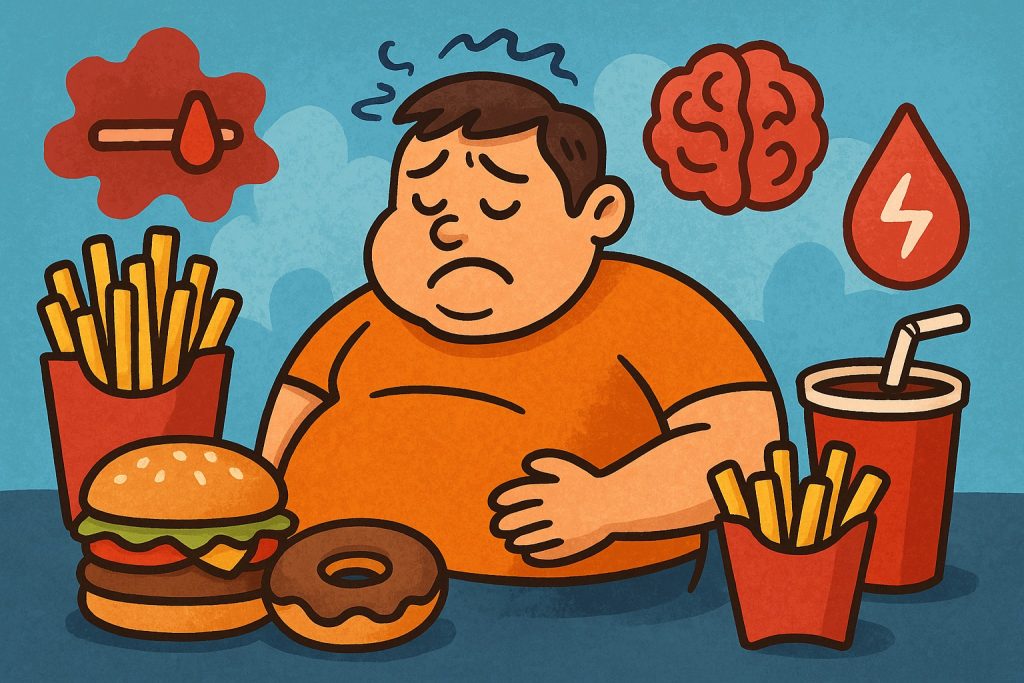Fast food is everywhere — it’s convenient, affordable, and often delicious. But behind the shiny packaging and catchy slogans lies a growing health concern. Consumed regularly, fast food can contribute to serious health problems, including obesity, heart disease, diabetes, and even mental health disorders. Understanding these risks is the first step toward making healthier dietary choices.
Fast food items tend to be high in calories, sugar, saturated fats, and sodium, but low in fiber, vitamins, and essential nutrients. Over time, this imbalance can overwhelm the body’s natural ability to regulate metabolism and immune function, leading to chronic illness.
How Fast Food Affects the Body
The most immediate effect of fast food is a spike in blood sugar and insulin levels due to high refined carbohydrate content. Over time, this can lead to insulin resistance, a key factor in the development of type 2 diabetes. High levels of sodium can elevate blood pressure, increasing the risk of hypertension and stroke.
The high amounts of saturated and trans fats contribute to high cholesterol, which in turn raises the likelihood of heart disease. Additionally, fast food often lacks dietary fiber, which is crucial for healthy digestion and long-term weight management.
Psychological and Behavioral Impacts
Frequent consumption of fast food has been linked to depression, anxiety, and reduced cognitive performance. Some studies suggest that highly processed foods can alter brain chemistry, triggering addiction-like responses. The rapid reward response from sugar and fat can lead to overeating and unhealthy food cravings.
Children and adolescents are especially vulnerable, as their developing brains and bodies are more sensitive to the effects of poor nutrition. Increased exposure to fast food marketing also influences their long-term eating habits.
Environmental and Social Concerns
The harm caused by fast food extends beyond individual health. The industry contributes to environmental degradation through large-scale farming, excessive packaging waste, and high greenhouse gas emissions. Moreover, it often relies on exploitative labor practices and supports unsustainable agricultural systems.
Cheap fast food may also worsen health inequality, as low-income communities often have limited access to fresh, nutritious foods while being surrounded by fast food outlets.
Making Healthier Choices
Cutting out fast food entirely is not always realistic, but moderation and awareness are key. Opting for healthier menu items, reducing portion sizes, and increasing whole foods like fruits, vegetables, and grains can make a big difference. Preparing meals at home, even occasionally, allows greater control over ingredients and nutrition.
Public health campaigns, nutrition education, and regulatory actions such as calorie labeling and limiting trans fats are also crucial in encouraging healthier eating habits.
Glossary
- Insulin resistance – A condition in which cells become less responsive to insulin, leading to elevated blood sugar.
- Type 2 diabetes – A chronic condition affecting the way the body processes blood sugar.
- Hypertension – High blood pressure, often leading to heart-related complications.
- Trans fats – Artificial fats linked to increased risk of heart disease and other health problems.
- Processed foods – Foods altered from their natural state through industrial methods, often with added preservatives, sugars, and fats.


